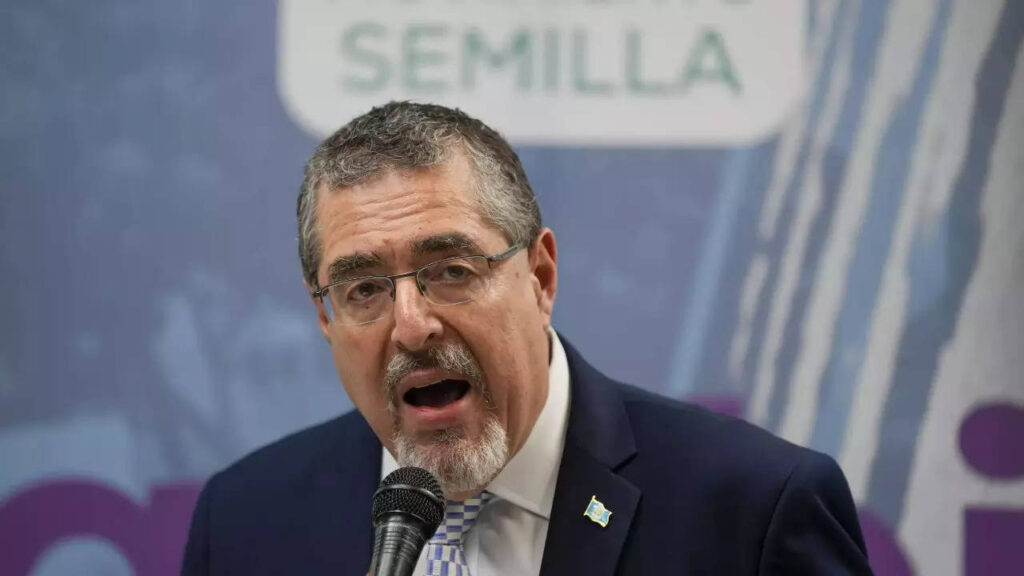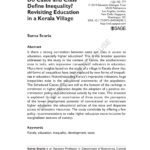By Satyaki Chakraborty
One month has passed since the Bernardo Alevaro, the Leftwing supremo of Semilla coalition was elected as the President of the South American nation in the general elections held on August 20. The President-elect is to take over on January 14,2024 as per the constitution but the entrenched right wing establishment is doing everything possible to nullify the victory of the left coalition and restoring the status quo favouring the big business and the US multinational companies.
Ever since the August 20’s historic win of this leftist, the established authorities — comprised of government bodies like judges, courts, and the attorney general’s office — have been doing everything in their power, short of staging a military coup, to prevent Arévalo and his party from assuming office on January 14, 2024. In the corporate media, continuous scare stories are being publicized stating that Guatemala under Arevalo rule will be turned into a country without any democratic rights including the right to own property.
In recent days, due to the attorney general’s actions, the country has experienced what could be classified as a soft coup d’état — no longer led by the military but by judges and prosecutors, who have twisted and violated electoral laws and the Constitution to advance a criminalization case against the party, cancel it, and imprison its leaders and candidates. The harassment has been so severe that the secretary general of the Organization of American States, Luis Almagro, has been present for all transition proceedings.
The law suits are indiscriminately filed against the senior leaders of the coalition including the President elect and the objective is even if the President-elect takes office on January 14, the situation will be so politically turbulent that it will be difficult for the new Government to run the administration
Political observers feel that if Arévalo and his government take office on January 14, they will start with numerous challenges. He will need a capable and competent executive cabinet, and implementing a progressive agenda will be an uphill battle with Congress primarily composed of right-wing parties and the judicial branch not in their favour. Arevalo in his manifesto has promised a welfare agenda including conferring land rights to the indigenous population, health care and education facilities for the underprivileged. Guatemala has more than 30 per cent people under poverty line while top 5 percent enjoy all the fruits of growth. It will be a Herculean task for the new coalition to pursue its agenda after taking over in January next year.
Interestingly in the political history of Guatemala, this has been a common feature. Whenever a pro people coalition took over, the new government was not allowed to go on implementing its agenda for the benefit of the people. Prior to the signing of the Peace Accords, the only two times that civilian presidents were in office (1966–1970 and 1986–1991), they faced similar levels of hostility and were unable to deliver on their promises of change and democracy. The military ultimately maintained control behind the scenes, and politicians failed to secure significant improvements for most citizens. As regards the present scenario, political observers feel that Arevalo will also be facing the same type of pressure from the entrenched vested interests and it will depend on his leadership and the capacity to take the people with his government whether he can implement his progressive agenda.
Arevalo has vowed to “purge institutions co-opted by the corrupt” and to get people committed to what he calls the fight for justice to return to Guatemala after scores of prosecutors, judges and journalists fled the country. He faces blowback from entrenched interests and a Congress which his party does not control. “This victory belongs to the people of Guatemala and now, united as the Guatemalan people, we will fight against corruption,” Arevalo told a news conference after his victory last month.
Arevalo unexpectedly emerged out of political obscurity to build a large anti-graft movement with his Semilla party, after many other opposition candidates were barred from running. His victory marks a repudiation of Guatemala’s established political parties that wield huge influence. Arevalo’s Semilla party is a coalition of anti right parties and movements and has got the support of Guatemalan Communist Party.
Beyond his anti-graft policies, Arevalo said he wants to expand relations with China alongside Guatemala’s longstanding allegiance with Taiwan. How he plans to do that remains to be seen, given China’s policy that no country it has ties with, can maintain separate diplomatic relations with Taipei. This year, Honduras became the latest country in the region to switch allegiance from Taiwan to China.
Guatemala has a tumultuous history relating to the functioning of democracy in the last century. In 1944, a coalition of the urban and rural sectors of the working class ousted Dictator Jorge Ubico, who ruled from 1931 to 1944. These events are known as Guatemala’s “October Revolution” and ushered in the “Ten Years of Spring,” a period of democratic progress that stretched until 1954.
Juan Jose Arévalo, the father of Bernardo Arévalo, was elected president of Guatemala in the country’s first democratic elections. For six years, the PAR (Revolutionary Action Party) governed, overseeing a liberalization of politics and public life. The government enacted labour reforms that included the formation of the IGSS (Guatemalan Institute of Social Security) and a new constitution.
Arévalo called his philosophy of governance “spiritual socialism”. During his tenure 1.4 million acres of land had been expropriated from the foreign owners and domestic landlords and distributed. To more than 5 lakh landless belonging to mostly indigenous people. The land distribution hit badly the US companies, especially the United Fruit Company. The US MNCs plotted with the domestic far right and brought down the government through the US intelligence agency CIA. The dictatorship of the far right began reversing all progressive reforms of the earlier era and this continued till the late nineties of the last century.
From 1996 to 2023, Guatemalan politics continued to be dominated by a conservative and comprador elite. On Sept. 15, 2015, after months of protest from the Guatemalan people, Otto Pérez Molina resigned as president after a warrant was issued for his arrest over a scheme that involved defrauding the country of millions of dollars. He also participated in the scorched earth military tactics of 1982-83 that led to the massacre of thousands of Indigenous people during the civil war.
That way, for the first time since 1954, the poor of Guatemala looked at the August 20 elections with some hope as the son of that pro-poor Prime Minister of the last century was in the electoral fray again with a similar programme of land distribution and spread of health and education facilities among the underprivileged. Junior Arevalo has won but the development in the next three months will indicate whether his take over on January 14 will be a smooth affair or not. (IPA Service)

 A Classic Case Of Caste Discrimination In Kerala
A Classic Case Of Caste Discrimination In Kerala 